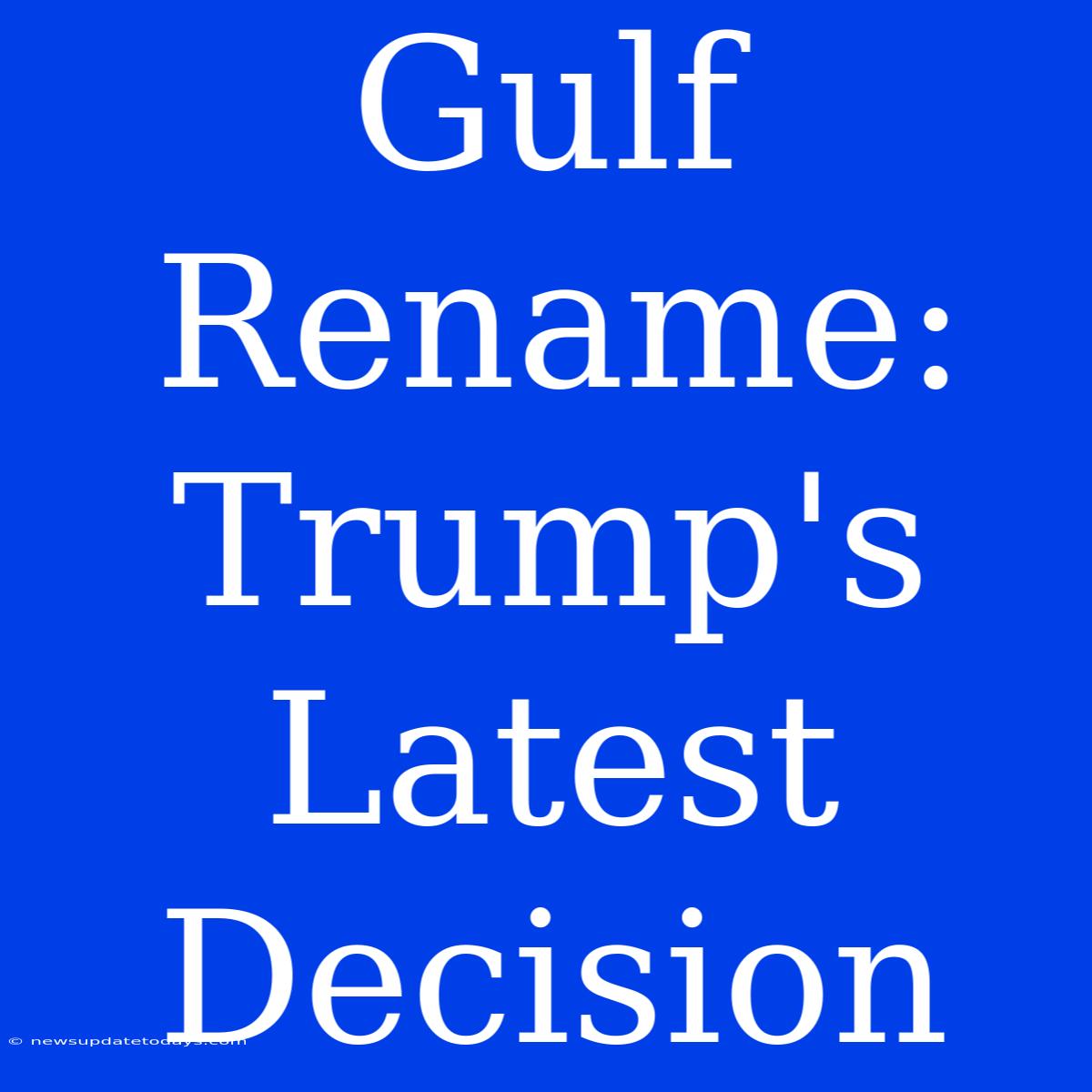Gulf Rename: Trump's Latest Controversial Decision
The renaming of the Persian Gulf to the "Arabian Gulf" has sparked fresh controversy, reigniting a long-standing geopolitical dispute and raising questions about the Trump administration's foreign policy decisions. This article delves into the implications of this controversial move, exploring its historical context, potential repercussions, and the broader political landscape it reflects.
A Deep Dive into History: Why the Name Matters
The nomenclature of the Persian Gulf has been a point of contention for decades. Iran, whose coastline comprises a significant portion of the gulf, strongly asserts the historical and geographical accuracy of the name "Persian Gulf." For centuries, it has been known by this name, a testament to its historical significance. Conversely, some Arab nations prefer the term "Arabian Gulf," emphasizing their regional identity and influence.
This seemingly minor detail carries profound political weight. The name reflects a nation's identity, its history, and its claim to regional dominance. Therefore, any attempt to unilaterally change this established nomenclature carries significant geopolitical implications.
Trump's Decision: A Controversial Move
President Trump's reported decision to use "Arabian Gulf" instead of "Persian Gulf" represents a significant shift in U.S. foreign policy terminology. This move aligns with the preference of certain Arab nations and potentially reflects a strategic realignment within the region. However, it is criticized by many for its potential to further strain already tense relationships with Iran.
What are the potential consequences?
- Increased Tensions with Iran: This decision is likely to be viewed as provocative by Iran, potentially escalating existing tensions and hindering diplomatic efforts. This action could also be perceived as a slight against Iran's historical and cultural claims.
- Impact on Regional Stability: The move could destabilize the already volatile region by exacerbating existing tensions and potentially triggering retaliatory actions. The changing of a long-standing name is a symbolic act carrying far-reaching effects.
- Criticism from International Community: The international community, already wary of the Trump administration's foreign policy decisions, is likely to express concern over this latest move. The decision might be seen as unilateral and dismissive of international consensus.
Analyzing the Broader Political Landscape
Trump's decision must be understood within the context of his broader foreign policy approach. This action could be interpreted as:
- A shift in alliance: This might be seen as a clear demonstration of support for certain Arab nations and a potential distancing from Iran.
- A strategic maneuver: The move could be a part of a larger strategy aimed at containing Iranian influence in the region.
- An attempt to appease allies: Trump's action could possibly be driven by a need to strengthen relationships with key regional allies.
Conclusion: Long-Term Implications
The renaming of the Persian Gulf, though seemingly a minor detail, carries significant weight in the geopolitical landscape. Trump's decision has the potential to escalate tensions, undermine regional stability, and further alienate the international community. The long-term implications of this controversial move remain to be seen, but it undeniably underscores the complexities of foreign policy and the sensitivity surrounding even seemingly trivial matters of nomenclature. Further analysis is required to fully understand the impact of this decision on the future of the region.

